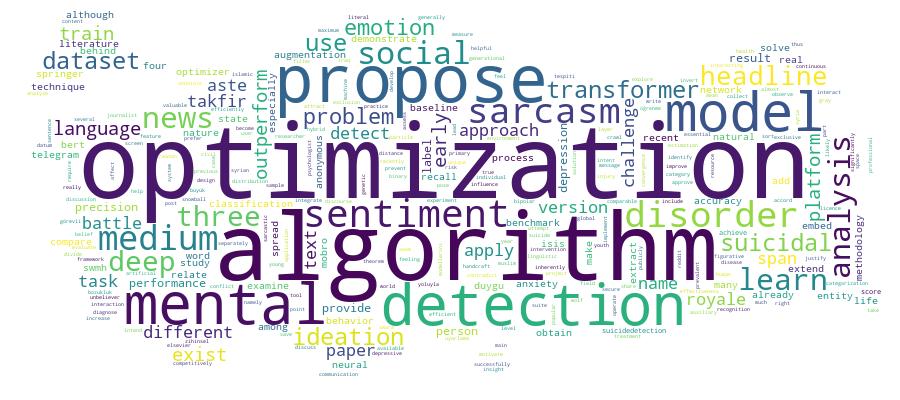Dehkharghani, Rahim
Loading...

Profile URL
Name Variants
Dehkharghani, Rahim
Dehkharghani,Rahim
Rahim, Dehkharghani
Rahim Dehkharghani
Dehkharghani, RAHIM
D., Rahim
D.,Rahim
Dehkharghani, R.
Rahim DEHKHARGHANI
RAHIM DEHKHARGHANI
DEHKHARGHANI, RAHIM
R. Dehkharghani
Dehkharghani,R.
DEHKHARGHANI, Rahim
Dehkharghani,Rahim
Rahim, Dehkharghani
Rahim Dehkharghani
Dehkharghani, RAHIM
D., Rahim
D.,Rahim
Dehkharghani, R.
Rahim DEHKHARGHANI
RAHIM DEHKHARGHANI
DEHKHARGHANI, RAHIM
R. Dehkharghani
Dehkharghani,R.
DEHKHARGHANI, Rahim
Job Title
Dr. Öğr. Üyesi
Email Address
Main Affiliation
Computer Engineering
Status
Current Staff
Website
ORCID ID
Scopus Author ID
Turkish CoHE Profile ID
Google Scholar ID
WoS Researcher ID
Sustainable Development Goals
15
LIFE ON LAND

0
Research Products
16
PEACE, JUSTICE AND STRONG INSTITUTIONS

1
Research Products
14
LIFE BELOW WATER

0
Research Products
6
CLEAN WATER AND SANITATION

0
Research Products
3
GOOD HEALTH AND WELL-BEING

2
Research Products
17
PARTNERSHIPS FOR THE GOALS

0
Research Products
4
QUALITY EDUCATION

0
Research Products
2
ZERO HUNGER

0
Research Products
10
REDUCED INEQUALITIES

0
Research Products
7
AFFORDABLE AND CLEAN ENERGY

0
Research Products
13
CLIMATE ACTION

0
Research Products
1
NO POVERTY

0
Research Products
9
INDUSTRY, INNOVATION AND INFRASTRUCTURE

0
Research Products
12
RESPONSIBLE CONSUMPTION AND PRODUCTION

0
Research Products
8
DECENT WORK AND ECONOMIC GROWTH

0
Research Products
11
SUSTAINABLE CITIES AND COMMUNITIES

0
Research Products
5
GENDER EQUALITY

0
Research Products

Documents
19
Citations
303
h-index
9

Documents
2
Citations
7

Scholarly Output
6
Articles
4
Views / Downloads
49/0
Supervised MSc Theses
1
Supervised PhD Theses
0
WoS Citation Count
11
Scopus Citation Count
25
WoS h-index
1
Scopus h-index
2
Patents
0
Projects
0
WoS Citations per Publication
1.83
Scopus Citations per Publication
4.17
Open Access Source
1
Supervised Theses
1
Google Analytics Visitor Traffic
| Journal | Count |
|---|---|
| Journal of Supercomputing | 2 |
| 8th International Symposium on Innovative Approaches in Smart Technologies, ISAS 2024 - Proceedings -- 8th International Symposium on Innovative Approaches in Smart Technologies, ISAS 2024 -- 6 December 2024 through 7 December 2024 -- Istanbul -- 206312 | 1 |
| Journal of Computational Social Science | 1 |
| SN Computer Science | 1 |
Current Page: 1 / 1
Competency Cloud


